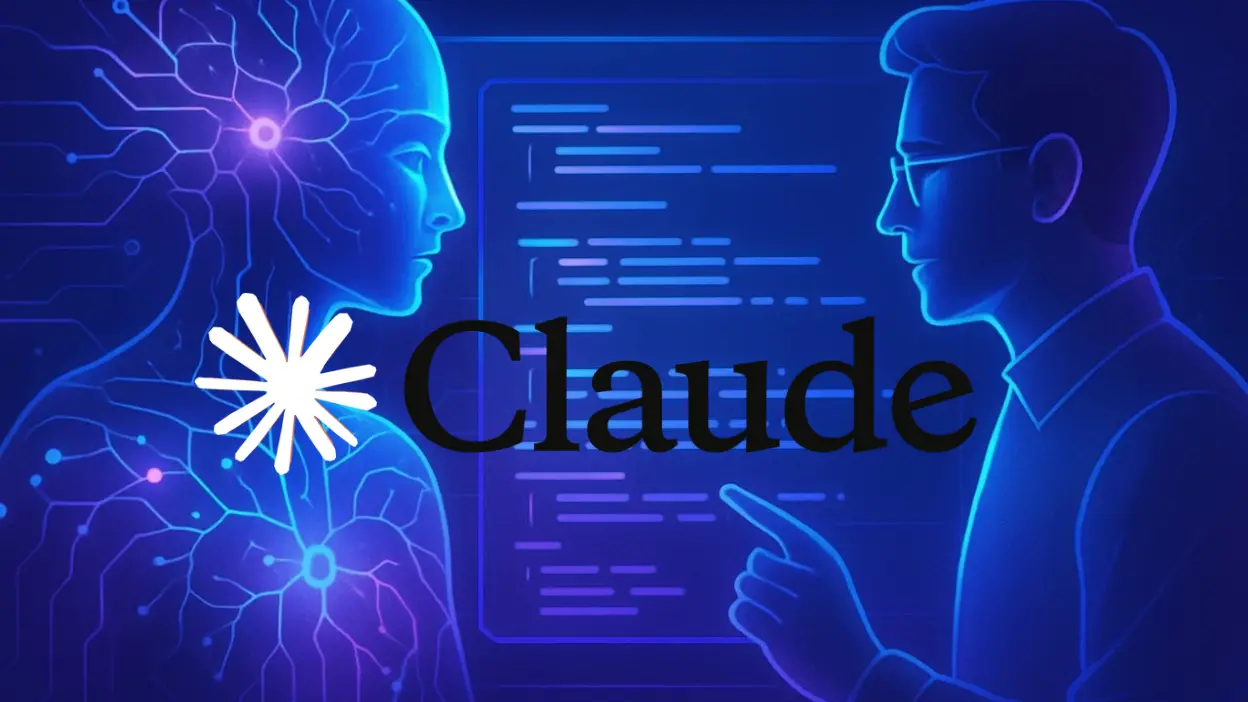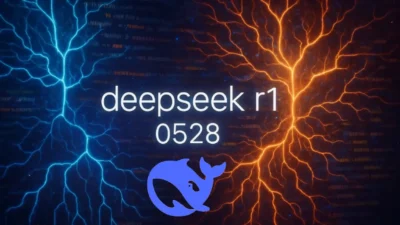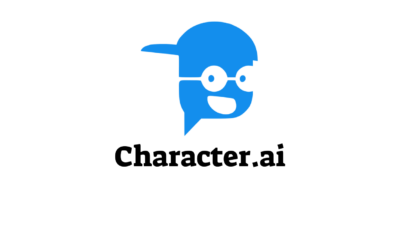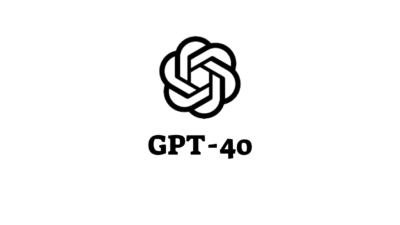Table of Contents
Beyond Chatbots – The Era of AI Agents Arrives
The relentless pace of artificial intelligence development continues to reshape possibilities, moving beyond simple conversational AI towards sophisticated agents capable of complex, long-running tasks. Anthropic, already a major force with its safety-focused Claude models, has once again raised the bar with the launch of its latest generation: Claude 4. Announced on May 22, 2025, this new iteration, featuring Claude Opus 4 and Claude Sonnet 4, isn’t just an incremental update; it represents a significant strategic shift, doubling down on advanced reasoning, world-class coding abilities, and powerful agentic functionalities designed to tackle complex workflows.
While Claude 3 set new benchmarks upon its release, Claude 4 aims even higher, particularly in the demanding domain of software engineering and autonomous task execution. Anthropic boldly claims Opus 4 is the “world’s best coding model,” capable of sustained performance over hours. Both models boast new capabilities like integrated tool use (including web search during extended thinking), parallel tool execution, and enhanced memory when granted file access, pushing the boundaries of what AI collaborators can achieve. This Claude 4 Review will dissect these claims and explore the real-world implications.
Is Claude 4 truly a leap forward in AI agency and coding prowess? How do Opus 4 and Sonnet 4 compare to their predecessors and formidable competitors like the latest GPT and Gemini models? This comprehensive review will delve into the specifics of the Claude 4 models, examining their new features, benchmark performance (especially in coding), usability changes, pricing structure (which remains consistent with Claude 3), and the enhanced safety measures implemented for these more capable systems. We will analyze the strengths that set Claude 4 apart and the potential limitations users should consider. Whether you are a developer seeking the ultimate coding partner, an enterprise exploring advanced AI agents, or an AI enthusiast tracking the frontier, this review provides the essential insights into Anthropic’s ambitious Claude 4.
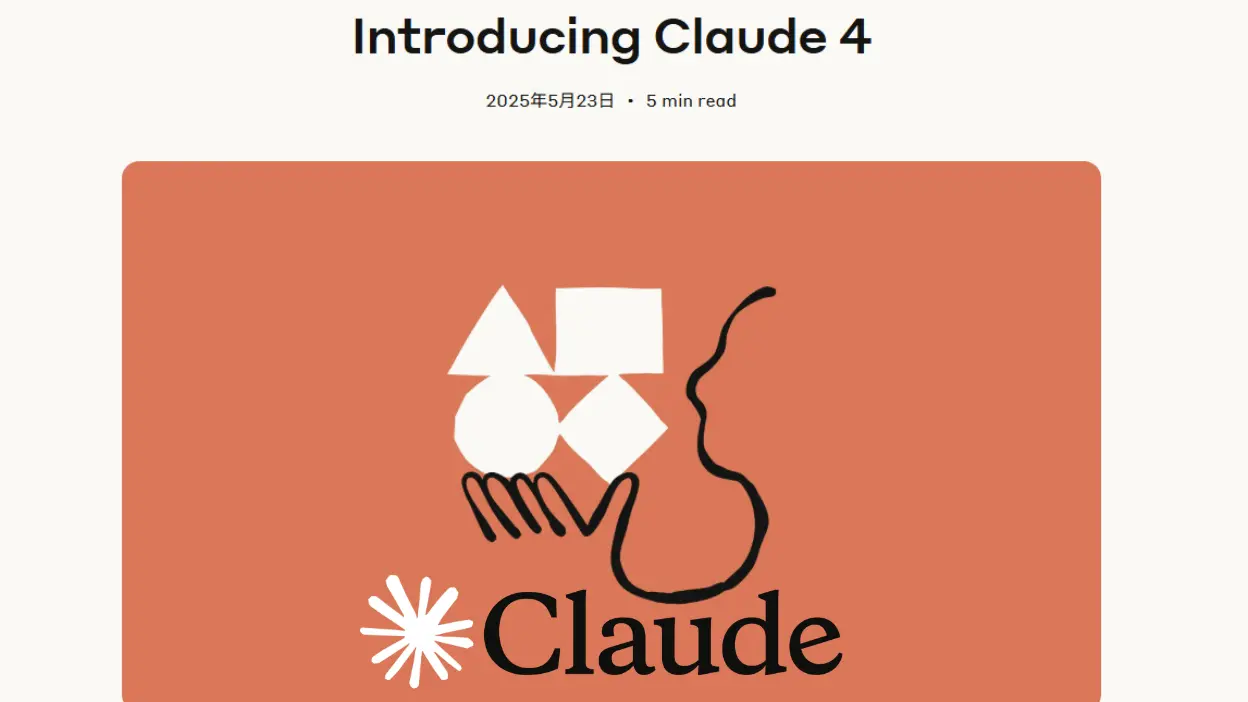
What is Claude 4? Anthropic’s Agentic Leap Forward
Claude 4 marks a significant evolution from its predecessor, representing Anthropic’s focused push towards more capable, autonomous AI systems, particularly excelling in coding and complex task execution. Launched in May 2025, the family currently consists of two primary models: Claude Opus 4 and Claude Sonnet 4. While Claude 3 introduced a tiered approach (Haiku, Sonnet, Opus), the Claude 4 launch notably focuses on the higher-end Opus and the significantly upgraded Sonnet, with no mention of a Haiku 4 model initially.
The core identity of Claude 4 revolves around enhanced agentic capabilities. Anthropic explicitly states a shift away from optimizing purely for chatbot interactions towards enabling models that can perform complex, multi-step tasks over extended periods. This is underpinned by several key advancements:
- World-Class Coding: Anthropic positions Opus 4 as the leading model globally for coding tasks, citing top performance on benchmarks like SWE-bench (measuring real-world software engineering capabilities) and Terminal-bench. Sonnet 4 also shows state-of-the-art coding performance, surpassing even its predecessor, Sonnet 3.7.
- Advanced Reasoning & Sustained Performance: Both models are designed for complex problem-solving and can maintain focus on long-running tasks requiring thousands of steps, with Opus 4 reportedly capable of working continuously for hours.
- Integrated Tool Use: A major upgrade is the ability for both Opus 4 and Sonnet 4 to utilize external tools during their reasoning process (termed “extended thinking”). This includes capabilities like web search (beta), allowing the models to fetch real-time information or interact with external APIs to complete tasks more effectively. They can also use multiple tools in parallel.
- Enhanced Memory & Continuity: When granted access to local files by developers via the new Files API, Claude 4 models (especially Opus 4) demonstrate significantly improved memory. They can create and reference ‘memory files’ to store key facts and context, enabling better continuity and tacit knowledge building over long interactions or complex projects.
- Improved Instruction Following & Reduced Loopholes: The models are better at precisely following instructions and are significantly less likely (65% reduction compared to Sonnet 3.7) to take shortcuts or exploit loopholes in agentic tasks.
- Hybrid Reasoning Modes: Both models offer near-instant responses for quick queries and an “extended thinking” mode for deeper reasoning and tool use on more complex problems.
- New API Capabilities: Supporting the agentic focus, Anthropic released new API features including a code execution tool, MCP connector (likely for multi-agent coordination), the Files API for memory, and prompt caching.
- Claude Code GA & IDE Integration: The Claude Code toolset, focused on developer collaboration, became generally available with native integrations for VS Code and JetBrains, allowing inline code edits and background tasks via GitHub Actions.
While retaining the multi-modal input capabilities (text and image analysis) of Claude 3, the emphasis with Claude 4 is clearly on task execution, coding proficiency, and agent-like behavior. Anthropic is positioning these models not just as assistants but as active collaborators capable of tackling substantial projects. This strategic direction is further supported by stricter safety measures, acknowledging the increased capabilities and potential risks associated with more autonomous AI systems, aligning with higher AI Safety Levels like ASL-3.
Access remains broad, with models available via the Anthropic API, claude.ai (Sonnet 4 for free users, both for subscribers), AWS Bedrock, and Google Cloud Vertex AI. Crucially, Anthropic maintained the same API pricing as Claude 3, making the enhanced capabilities available without an immediate cost increase for API users.
Getting Started & Usability: Interacting with Claude 4’s Enhanced Capabilities
While Claude 4 represents a significant leap in capability, particularly towards complex tasks and agentic behavior, Anthropic has aimed to maintain accessible pathways for users and developers. Getting started involves familiar channels, but the usability experience is increasingly shaped by the new features designed for deeper collaboration and task execution.
Access Channels:
Similar to its predecessor, Claude 4 is accessible via:
* claude.ai Web Interface: This remains the primary entry point for individual users. Claude Sonnet 4 powers the free tier, offering a substantial upgrade over previous free offerings. Subscribers to Pro, Max, Team, and Enterprise plans gain access to both Sonnet 4 and the powerful Opus 4, along with features like extended thinking.
* Anthropic API: Developers leverage the API for custom integrations. Both Opus 4 and Sonnet 4 are available, with pricing remaining consistent with Claude 3 models ($15/$75 per million input/output tokens for Opus 4, $3/$15 for Sonnet 4).
* Cloud Platforms: Claude 4 models are also available through major cloud providers like AWS Bedrock and Google Cloud Vertex AI, facilitating integration within existing cloud infrastructure.
Onboarding and Basic Interaction:
The onboarding process for claude.ai remains straightforward (email signup). The basic chat interface is familiar, making simple interactions intuitive. However, Anthropic’s strategic shift is noticeable; the platform feels less like a simple chatbot and more like a powerful workspace, especially when utilizing Opus 4 or features like file uploads (if applicable in the interface) or extended thinking.
Usability Enhancements for Complex Tasks:
The true usability evolution in Claude 4 lies in features supporting complex workflows:
* Tool Use Integration: The ability for models to use tools like web search or potentially other APIs during extended thinking significantly enhances practical usability for tasks requiring external information or actions. This reduces the need for users to manually fetch information and feed it back into the prompt.
* Claude Code & IDE Integration: For developers, the general availability of Claude Code and its native integrations with VS Code and JetBrains represent a major usability improvement. Seeing suggested code edits directly inline within the familiar IDE environment streamlines the review and acceptance process, making pair programming with Claude much more seamless than copying and pasting code snippets.
* Memory via Files API: While requiring developer implementation, the ability for Claude 4 (especially Opus 4) to use local files for memory dramatically improves usability for long-running, complex tasks that require maintaining context and evolving understanding over time.
* Improved Instruction Following: The enhanced ability to follow precise instructions reduces the need for complex prompt engineering for certain tasks and makes the model more reliable as a collaborator.
Potential Usability Considerations:
* Complexity Management: While powerful, features like tool use and agentic workflows introduce new layers of complexity for users and developers to manage effectively.
* Extended Thinking Time: Tasks utilizing extended thinking and tool use will naturally take longer than near-instant responses, requiring users to adapt their expectations for complex queries.
* Reliability at Scale: As noted by Anthropic’s CSO, ensuring reliability as tasks become more complex and agentic remains a key challenge and focus area.
In conclusion, getting started with basic Claude 4 interactions is easy and familiar. The significant usability advancements lie in the tools and integrations designed to support its enhanced coding and agentic capabilities. Developers, in particular, benefit from the new API features and direct IDE integrations, making Claude 4 a more deeply integrated and powerful collaborator for complex software engineering and automated tasks.
Core Features in Action: Claude 4 Performance Under the Hood
Anthropic’s Claude 4 generation, comprising Opus 4 and Sonnet 4, isn’t just about adding features; it’s fundamentally about elevating performance in key areas, particularly coding, complex reasoning, and agentic task execution. Let’s dissect how these core capabilities perform based on Anthropic’s claims and early reports.
Coding Prowess:
This is arguably the headline feature of Claude 4. Anthropic positions Opus 4 as the “world’s best coding model,” backing this claim with leading scores on challenging benchmarks like SWE-bench (72.5%) and Terminal-bench (43.2%), which evaluate performance on real-world software engineering tasks. Sonnet 4 also achieves a state-of-the-art SWE-bench score (72.7%), indicating significant coding improvements across the board. Early feedback from partners like Replit, Block, Rakuten, Cognition, GitHub, Sourcegraph, and Augment Code reinforces these claims, highlighting improved precision, better handling of complex changes across multiple files, enhanced code quality during debugging, sustained performance on long refactoring tasks, and more elegant code generation. This suggests Claude 4 is a highly effective tool for developers, capable of acting as a sophisticated pair programmer or even autonomously handling significant coding challenges.
Advanced Reasoning and Sustained Performance:
Beyond coding, Claude 4 models are engineered for complex problem-solving and long-running tasks. Opus 4 is highlighted for its ability to maintain performance over thousands of steps and potentially work continuously for hours. This sustained performance is crucial for agentic workflows where the AI needs to maintain context and pursue a goal over an extended period without degrading in quality or “going off the rails,” as acknowledged by Anthropic’s CSO. This capability powers complex research, analysis, and multi-step problem-solving scenarios.
Tool Use and Extended Thinking:
The integration of tool use within an “extended thinking” process marks a significant performance enhancement. Both Opus 4 and Sonnet 4 can leverage tools like web search (beta) or potentially other developer-provided tools/APIs. This allows the models to break down complex problems, gather necessary external information or perform actions via tools, and then synthesize the results. The ability to use tools in parallel further speeds up complex workflows. This moves Claude 4 beyond static knowledge retrieval towards dynamic problem-solving in real-world contexts.
Memory and Continuity:
The new memory capability, enabled when developers grant access to local files via the Files API, allows Claude 4 (especially Opus 4) to build and reference its own ‘memory files.’ This drastically improves performance on tasks requiring long-term context awareness and continuity. The example cited by Anthropic – Opus 4 creating notes while playing Pokémon to improve its gameplay – illustrates how this feature enables learning and adaptation within a task, crucial for sophisticated agent behavior.
Instruction Following and Reliability:
Anthropic reports that Claude 4 models are better at precisely following instructions and are 65% less likely than Sonnet 3.7 to resort to shortcuts or loopholes when performing agentic tasks. This increased reliability and steerability are vital for users delegating complex work, ensuring the AI performs the task as intended.
Overall Performance Impression:
Claude 4 appears to deliver substantial performance gains over Claude 3, particularly in coding and agentic capabilities. The focus has shifted towards enabling complex, long-duration tasks through features like sustained performance, tool use, and memory. While retaining strong general reasoning and language skills, the standout characteristic is its enhanced ability to do things, especially complex coding and multi-step workflows. While independent, large-scale benchmarking against the very latest competitor models (like potential GPT-5 or newer Gemini versions) will be ongoing, Anthropic’s data and partner testimonials strongly suggest Claude 4 is a top-tier performer, especially for developers and those building sophisticated AI agents.
Claude 4 Pricing & Plans: Consistent Cost for Enhanced Capabilities
One of the notable aspects of the Claude 4 launch is Anthropic’s decision to maintain price consistency with the previous generation, despite the significant performance upgrades and new features offered by Opus 4 and Sonnet 4. This strategy makes the enhanced capabilities accessible without an immediate cost barrier for existing users and provides clear value for new adopters.
API Pricing (Pay-as-you-go):
The token-based pricing for API access remains unchanged from Claude 3:
- Claude Sonnet 4: $3 per million input tokens and $15 per million output tokens. This positions the significantly upgraded Sonnet 4 as a direct, cost-neutral replacement for Sonnet 3.x for API users, offering better performance (especially in coding) for the same price.
- Claude Opus 4: $15 per million input tokens and $75 per million output tokens. Similarly, the most powerful Opus 4 model retains the premium pricing of its predecessor, reflecting its state-of-the-art capabilities in coding, reasoning, and agentic tasks.
This consistency simplifies cost management for developers already using Claude APIs and presents a strong value proposition, offering more advanced models at established price points.
Claude.ai Subscriptions (Individual & Team Use):
Access through the claude.ai web interface also reflects the integration of the new models into existing plans:
- Free Tier: Continues to offer access, now powered by the upgraded Claude Sonnet 4, providing free users with a more capable model than before.
- Pro Plan ($20/month or discounted annual rate): Subscribers gain access to both Sonnet 4 and the top-tier Opus 4, along with higher usage limits and features like extended thinking.
- Team Plan: Designed for collaborative use within organizations, offering higher usage per user and administrative features, presumably also providing access to both Sonnet 4 and Opus 4.
- Enterprise Plan: Custom pricing for large-scale deployments, likely including access to all models and potentially features like the 1M+ token context window (though this needs confirmation for C4) and dedicated support.
Value Proposition:
By keeping prices stable while significantly boosting performance and adding features like tool use and enhanced memory, Anthropic enhances the value proposition of Claude 4. Users get access to world-class coding abilities (Opus 4) or a highly capable, balanced model (Sonnet 4) at price points already familiar from the previous generation. This contrasts with potential competitor strategies where new, more capable models might launch with higher price tags. The decision makes upgrading or adopting Claude 4 more straightforward from a budget perspective, particularly for API users who can directly compare the cost-performance ratio against Claude 3 and other market alternatives.
Pros and Cons: Evaluating Claude 4’s Strengths and Weaknesses
Anthropic’s Claude 4 generation, with Opus 4 and Sonnet 4, introduces powerful new capabilities but, like any technology, comes with trade-offs. Here’s a breakdown of the key strengths and potential weaknesses based on available information:
Pros (Strengths):
- World-Class Coding Ability: This is the standout advantage, particularly for Opus 4, which leads on demanding software engineering benchmarks. Sonnet 4 also shows state-of-the-art coding performance, making the family highly attractive for developers.
- Advanced Agentic Capabilities: Features like integrated tool use (web search, APIs), parallel tool execution, enhanced memory via file access, and improved instruction following enable more complex, autonomous task execution.
- Sustained Performance on Long Tasks: Opus 4 is specifically designed to maintain high performance over extended periods (hours) and thousands of steps, crucial for complex agent workflows.
- Enhanced Reasoning: Builds upon Claude 3’s strengths with further improvements in complex problem-solving.
- Improved Reliability & Steerability: Models are less likely to take shortcuts or deviate from instructions in agentic tasks, making them more dependable collaborators.
- Consistent API Pricing: Upgraded models are offered at the same price points as their Claude 3 predecessors, increasing the value proposition.
- Strong Partner Endorsements: Positive feedback from numerous tech companies (GitHub, Replit, Cursor, etc.) validates the real-world effectiveness, especially in coding scenarios.
- Seamless IDE Integration (Claude Code): Native integrations with VS Code and JetBrains significantly improve the developer workflow for pair programming.
- Continued Safety Focus: Anthropic maintains its commitment to safety, implementing stricter measures (aligned with ASL-3) for these more capable models.
Cons (Weaknesses):
- Knowledge Cutoff (Persistent Limitation): While tool use (like web search) can mitigate this, the core models likely still have a knowledge cutoff date, potentially limiting responses on topics arising after training unless a tool is explicitly used.
- No Image Generation: Like Claude 3, Claude 4 can analyze images but cannot generate them, lagging behind competitors offering integrated text-to-image features.
- Complexity of New Features: Leveraging the full potential of agentic features, tool use, and memory requires more sophisticated setup and prompt engineering from users and developers.
- Potential Reliability Concerns on Highly Complex Tasks: While improved, ensuring consistent reliability as AI agents tackle increasingly complex, long-running tasks remains an ongoing challenge in the field, as acknowledged implicitly by Anthropic.
- Cost of Opus 4: Although pricing is consistent with Claude 3, Opus 4 remains a premium-priced model, potentially limiting accessibility for some users.
- Focus Shift: The strong emphasis on coding and agents might mean less focus on optimizing for purely conversational or creative writing tasks compared to some competitors, although writing capabilities are still reported as strong.
- Haiku 4 Absence (Initial Launch): The initial launch focused only on Opus 4 and Sonnet 4, leaving the status of a potential ultra-fast, low-cost Haiku 4 unclear.
Overall, Claude 4 significantly boosts strengths in coding and agentic tasks, making it a powerhouse for developers and complex workflows. The primary trade-offs involve the inherent complexity of managing these advanced features, the persistent knowledge cutoff (partially addressed by tools), and the lack of image generation.
Who is Claude 4 Best For?
The launch of Claude 4, with its heavy emphasis on coding prowess and agentic capabilities, signals a clear focus on specific user segments, although its underlying power remains beneficial across various domains. Identifying the ideal user for Opus 4 and Sonnet 4 involves considering these enhanced strengths.
- Developers & Software Engineers: This is arguably the primary target audience for Claude 4, especially Opus 4. Its world-class coding performance, ability to handle complex codebases, sustained performance for long tasks (like refactoring), and seamless IDE integration via Claude Code make it an invaluable tool for individual developers, startups, and large engineering teams looking to accelerate development, improve code quality, and automate complex coding tasks.
- Enterprises Building AI Agents: Organizations seeking to build or deploy sophisticated AI agents for automating complex workflows, performing research, analyzing data, or interacting with multiple systems will find Claude 4 highly suitable. Features like extended thinking, tool use (web search, APIs), parallel tool execution, and enhanced memory are specifically designed for building more capable and reliable agents.
- Technical Researchers & Scientists: Researchers needing to process vast amounts of data, perform complex analyses, generate code for simulations, or even design experiments can leverage Opus 4’s advanced reasoning and long-context capabilities.
- Businesses Needing Complex Task Automation: Beyond pure coding, businesses looking to automate intricate processes involving data analysis, report generation, complex scheduling, or multi-step customer interactions can utilize Claude 4’s ability to follow instructions precisely and work on tasks over extended periods.
- Power Users & Professionals Requiring Advanced Collaboration: Individuals who used previous models as thinking partners (like Anthropic’s CPO mentioned) may find Claude 4 crosses the threshold into being a true writing or task collaborator, capable of handling more of the workload directly due to its improved understanding and generation capabilities, particularly with Opus 4 via the Pro subscription.
- Organizations Prioritizing Safety with Advanced AI: As capabilities increase, so do potential risks. Organizations seeking cutting-edge AI performance but prioritizing safety alignment will appreciate Anthropic’s continued focus and implementation of stricter safeguards (ASL-3 measures) for Claude 4.
While Sonnet 4 offers a more balanced and cost-effective option suitable for a broader range of enterprise tasks (similar to Sonnet 3.x but with better performance), the overall direction of Claude 4 leans heavily towards users and organizations tackling complex, technical, and often long-duration tasks, especially in the software development and AI agent domains. The simple chatbot use case, while still possible, is less the focus compared to enabling deep, collaborative work.
Alternatives to Claude 4: The Competitive Landscape Heats Up
With the launch of Claude 4 and its pronounced focus on coding and agentic capabilities, the competitive landscape for top-tier AI models becomes even more intense. Users evaluating Opus 4 and Sonnet 4 must consider how they stack up against the latest offerings from OpenAI and Google, the primary rivals.
- OpenAI’s GPT Models (Latest Variants, e.g., GPT-4o, potential future releases):
- Overview: OpenAI continues to iterate rapidly. Models like GPT-4o introduced enhanced multi-modality (voice, vision) and speed improvements. Future models will likely push boundaries further.
- Key Differentiators vs. Claude 4: While Claude 4 claims leadership in specific coding benchmarks (SWE-bench), OpenAI models often excel in creative tasks, general knowledge breadth, and integrated multi-modal generation (like DALL·E 3). GPT-4o emphasized real-time voice interaction and improved vision understanding. The competition becomes a feature-by-feature comparison: Claude 4’s strengths appear to be deep coding, sustained agentic performance, and potentially stricter safety alignment, while OpenAI might lead in real-time multi-modal interaction, creative generation, and potentially broader general knowledge access depending on the specific model and task.
- Google’s Gemini Models (Latest Variants, e.g., Gemini 1.5 Pro/Flash, potential future releases):
- Overview: Google’s Gemini family, particularly Gemini 1.5 Pro with its standard 1 million token context window, remains a powerful competitor. Google continues to integrate Gemini deeply into its ecosystem.
- Key Differentiators vs. Claude 4: Gemini 1.5 Pro’s large default context window is a key advantage for certain tasks. Google’s integration with Search provides strong real-time information capabilities, potentially surpassing Claude 4’s tool-based web search depending on implementation. While Claude 4 leads on some coding benchmarks, Gemini models also possess strong coding and reasoning skills. The choice might depend on specific benchmark needs, preference for Google ecosystem integration, or the specific requirements for context length versus Claude 4’s potentially superior sustained performance or specific tool integrations.
- Other Specialized Models & Open Source:
- Overview: The field includes specialized models focused on specific domains (like coding-specific models) and increasingly capable open-source models (like Llama 3 and its successors).
- Key Differentiators vs. Claude 4: Specialized coding models might compete directly with Opus 4 on specific programming tasks. Open-source models offer customization and transparency but typically require more infrastructure and safety management. Claude 4 aims to provide state-of-the-art performance with integrated safety features and enterprise support, differentiating it from many open-source alternatives.
Choosing an Alternative in the Claude 4 Era:
The decision hinges on priorities:
- For the absolute claimed leader in coding benchmarks and sustained agentic performance, Claude 4 (Opus 4) makes a strong case.
- For cutting-edge real-time multi-modal interaction (voice/vision) and creative generation, OpenAI’s latest GPT models might be preferred.
- For massive default context windows and deep Google ecosystem integration, Google’s Gemini 1.5 Pro is a key alternative.
- For maximum customization and transparency, leading open-source models are the path, albeit with more overhead.
The launch of Claude 4, particularly its focus on deep coding and agent tasks, forces competitors to respond and sharpens the differentiation points. Thorough testing against specific use cases remains paramount.
Verdict & Final Score: Is Claude 4 the New King of Code and Agents?
Anthropic’s Claude 4 generation, spearheaded by Opus 4 and Sonnet 4, represents a bold and focused stride into the future of AI – one centered on sophisticated coding, complex task execution, and autonomous agent capabilities. Moving beyond the generalist chatbot paradigm, Claude 4 delivers substantial upgrades aimed squarely at developers and enterprises seeking powerful AI collaborators for demanding workflows.
The claims are significant: Opus 4 as the world’s best coding model, both models capable of using tools like web search, enhanced memory for long-term tasks, and sustained performance over hours. Early benchmarks and partner testimonials largely support the narrative of exceptional coding prowess and improved agentic reliability. The seamless IDE integrations via Claude Code further solidify its appeal to the developer community. The decision to maintain Claude 3’s API pricing structure while delivering these enhanced capabilities significantly boosts the value proposition.
However, potential adopters must weigh these strengths against persistent limitations. The knowledge cutoff, though mitigated by tool use, remains a factor. The lack of image generation capabilities keeps it behind multi-modal competitors in that specific area. Furthermore, harnessing the full power of Claude 4’s agentic features requires a higher degree of technical sophistication, and ensuring reliability on extremely complex, open-ended tasks will be an ongoing process.
So, is Claude 4 worth it?
- For Developers & Software Engineers: Absolutely. Claude 4, particularly Opus 4 combined with Claude Code integrations, appears to be a state-of-the-art tool that could significantly enhance productivity and code quality. The investment (time and potentially cost for Opus 4) seems highly justified given the reported capabilities.
- For Enterprises Building AI Agents: Claude 4 offers a compelling platform with features specifically designed for complex automation. Its performance, tool use, and memory capabilities make it a top contender for building sophisticated internal or customer-facing agents.
- For General Users: While Sonnet 4 (available free) is more capable than its predecessor, the primary advancements of Claude 4 are less focused on casual chat. Users seeking the absolute cutting edge in general conversation or creative multi-modal generation might find competitors like the latest GPT or Gemini models more aligned with their immediate needs, though Claude 4 remains a powerful generalist.
Final Score:
Claude 4 delivers exceptional performance in its target areas of coding and agentic tasks, backed by thoughtful features and consistent pricing. It sets a new benchmark for AI as a specialized collaborator.
Rating: 4.7 / 5 Stars
(Points deducted slightly for lack of image generation and the inherent complexity/potential reliability edge cases of advanced agentic features, but score increased from C3 due to significant targeted capability leaps and consistent pricing).
Claude 4 is a remarkable achievement, pushing the boundaries of AI collaboration, especially in the technical domain. It’s a must-evaluate platform for anyone serious about leveraging AI for software development or complex task automation.
Call to Action:
Dive into the future of coding with Claude 4 on claude.ai, explore the enhanced Anthropic API, or integrate Claude Code into your IDE.
Share your experiences building with Claude 4 in the comments below!


